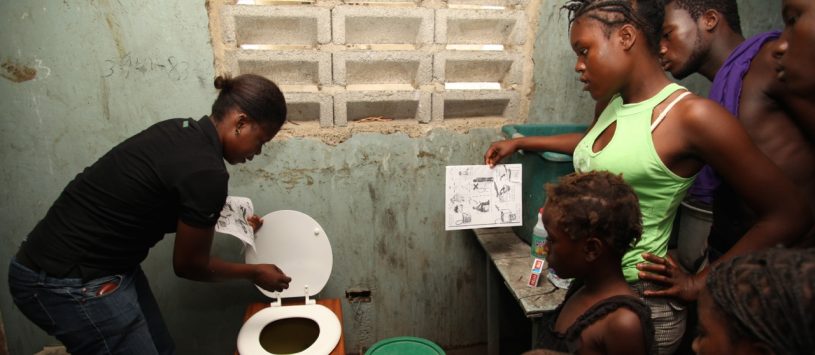If you’ve followed our story with the Peace & Joy families over the past several years, you’ve hopefully seen the children flourish after placing them back into stable families (as opposed to the rundown orphanage we found them in). Since then, our long-range vision has been to collaborate with the adult family members and help empower them with stable employment. When we first tried to implement this plan in 2015, we became aware of a savings collective that each family was participating in, called a “sol.” We didn’t want to disrupt the self-developed initiative, so we’ve been in a holding pattern, collecting information about each adult’s gifts, abilities, and resources (called asset-based community development).
Just recently, we’ve felt convicted about helping the families in areas of basic need. In the aftermath of Hurricane Matthew and the resultant flooding and water-borne diseases, it has become more apparent that the families do not have simple infrastructure like improved plumbing and clean drinking water. There is always a risk of serious health problems under these conditions. If you’re familiar with Maslow’s hierarchy of needs, we have been trying to jump right to ‘esteem’ and ‘self-actualization’ assistance, such as empowering through small business, yet we’ve neglected some basic ‘survival’ and ‘safety’ needs that could dramatically improve quality of life almost instantly.
Through our network, we became aware of an opportunity to secure home toilet service for 15 families. For about the cost of a cup of coffee, a family receives a portable toilet unit that can be placed in the home, as well as regular waste removal service for an entire month. The organization, called Sustainable Organic Integrated Livelihoods (SOIL), employs Haitians at waste treatment centers and uses the recycled compost to help restore Haiti’s heavily deforested landscape. This is a game-changer for the families and we fully support the sustainable business model that SOIL uses.
We’re also pursuing a partnership with a clean water well organization. In Haiti, there are a number of NGOs and other entities that have the capability of installing the wells, but we want to make sure we find the right one. It is important to us that the proper research is done prior to installation, and that the sustainability and maintenance of the well is taken into account. More to come on this as it unfolds.
We haven’t made these decisions in a vacuum. We’ve kept the families involved to ensure these are desired changes, and we’ve given them a stake in the implementation process. We know that forming these types of dignifying, mutually respectful relationships is the only way to build trust and develop the community for the long-term. Thank you to all who’ve shown an interest in supporting these projects – we’re excited to see this next frontier in the families’ journey out of poverty.
*Featured image courtesy of the SOIL website, www.oursoil.org, showing a family getting trained on how to use the new unit.



